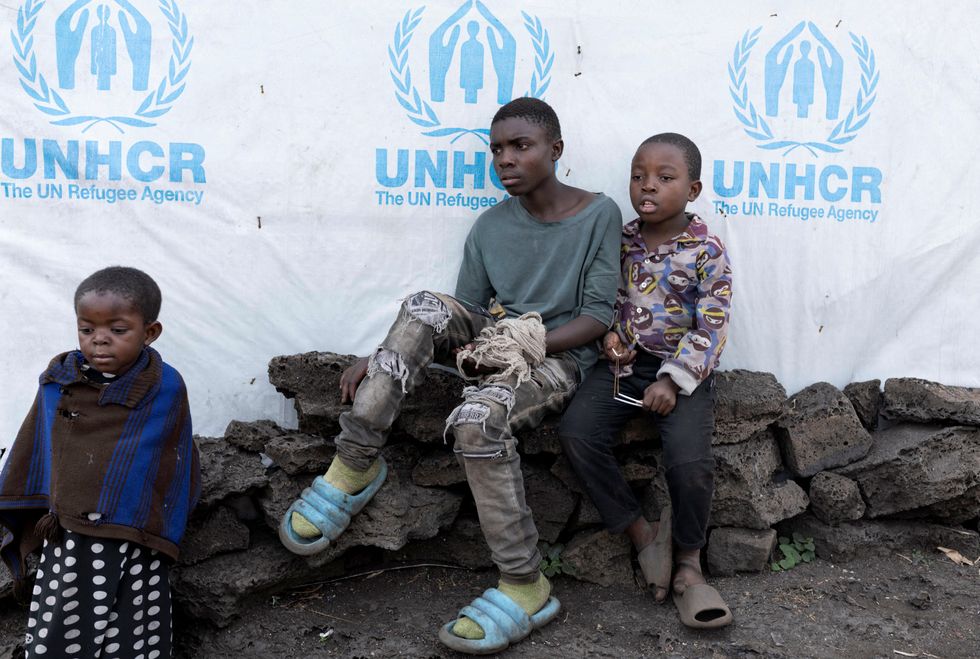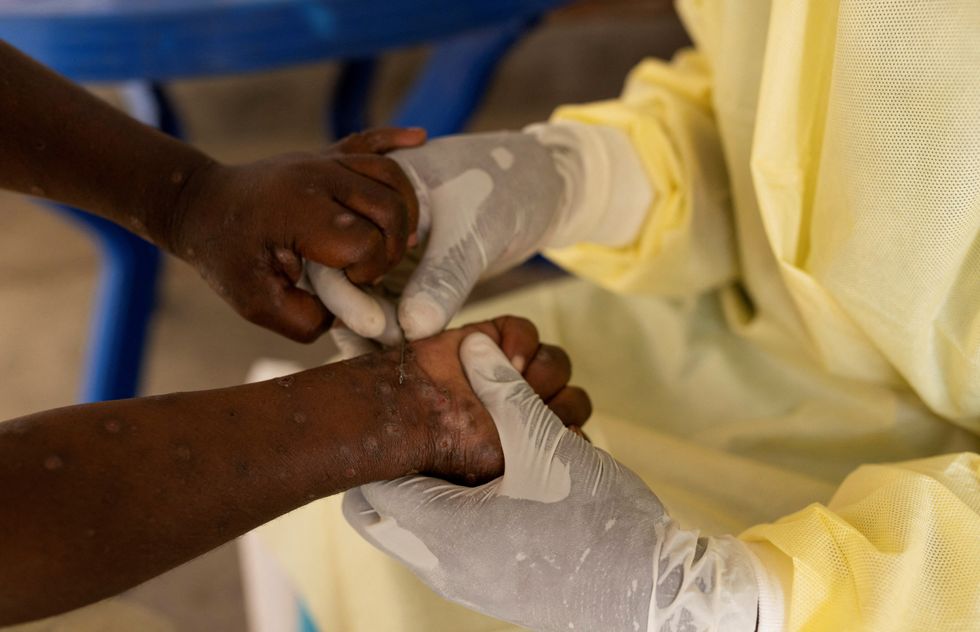Eliana Silver
Guest Reporter
The Mpox threat is getting closer to the UK as a new variant has been detected for the first time in France.
One person in France has been identified as carrying the clade 1b sub-variant of the virus, which is considered to be more contagious and more dangerous.
A press release from the Ministry of Health reads: "The Ministry of Labor and Health" has been informed "of a first human case of Mpox clade 1b on the national territory, in Brittany. The recommended management measures have been put in place."
"However, this person was in contact with two people returning from Central Africa. Investigations are underway to find the origin of the contamination and identify all the people at risk in contact with the diagnosed case."

Mpox is a virus that is transmitted from animals to humans but can also be spread through close personal contact with a person infected.
By 2022, the global outbreak had spread to about 100 countries where the disease was not endemic.
This new variant had already been experiencing a resurgence in the Democratic Republic of Congo since September 2023.
However, cases outside the continent have also been detected. The first one in Sweden in August and then in Germany and the UK in late October.
MORE LIKE THIS:
These infections were imported - meaning they occurred outside the national territory.
This sub-variant is considered to be more contagious with a higher fatality rate.
It causes rashes all over the body, while previous strains caused rashes localised on the mouth, face or genitals.
The French health authorities have updated their vaccination recommendations, recommending booster doses for people at higher risk.

This includes men who have relations with men, sex workers, and trans people with multiple partners who had already received the vaccine during the first epidemic.
"The detection of this clade 1b does not change the response strategy," stated the French health authorities.
They said the classic strain has continued to circulate “quietly in France,” with 215 cases in 2014 in the mainland.
Find Out More...
One person in France has been identified as carrying the clade 1b sub-variant of the virus, which is considered to be more contagious and more dangerous.
A press release from the Ministry of Health reads: "The Ministry of Labor and Health" has been informed "of a first human case of Mpox clade 1b on the national territory, in Brittany. The recommended management measures have been put in place."
"However, this person was in contact with two people returning from Central Africa. Investigations are underway to find the origin of the contamination and identify all the people at risk in contact with the diagnosed case."

Mpox is a virus that is transmitted from animals to humans but can also be spread through close personal contact with a person infected.
By 2022, the global outbreak had spread to about 100 countries where the disease was not endemic.
This new variant had already been experiencing a resurgence in the Democratic Republic of Congo since September 2023.
However, cases outside the continent have also been detected. The first one in Sweden in August and then in Germany and the UK in late October.
MORE LIKE THIS:
- 'It makes me sick!' Lee Anderson demands small boats be turned back 'the same day' after Christmas Channel crossings
- Migrant crisis: More than 700 migrants cross Channel illegally over Christmas and Boxing Day
- Three migrants dead as small boat tries to cross Channel to Britain with major rescue operation underway in northern France
These infections were imported - meaning they occurred outside the national territory.
This sub-variant is considered to be more contagious with a higher fatality rate.
It causes rashes all over the body, while previous strains caused rashes localised on the mouth, face or genitals.
The French health authorities have updated their vaccination recommendations, recommending booster doses for people at higher risk.

This includes men who have relations with men, sex workers, and trans people with multiple partners who had already received the vaccine during the first epidemic.
"The detection of this clade 1b does not change the response strategy," stated the French health authorities.
They said the classic strain has continued to circulate “quietly in France,” with 215 cases in 2014 in the mainland.
Find Out More...
